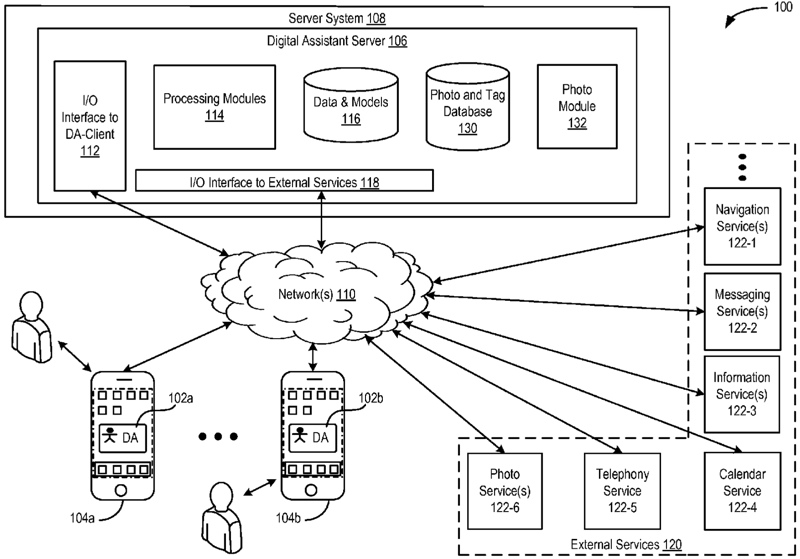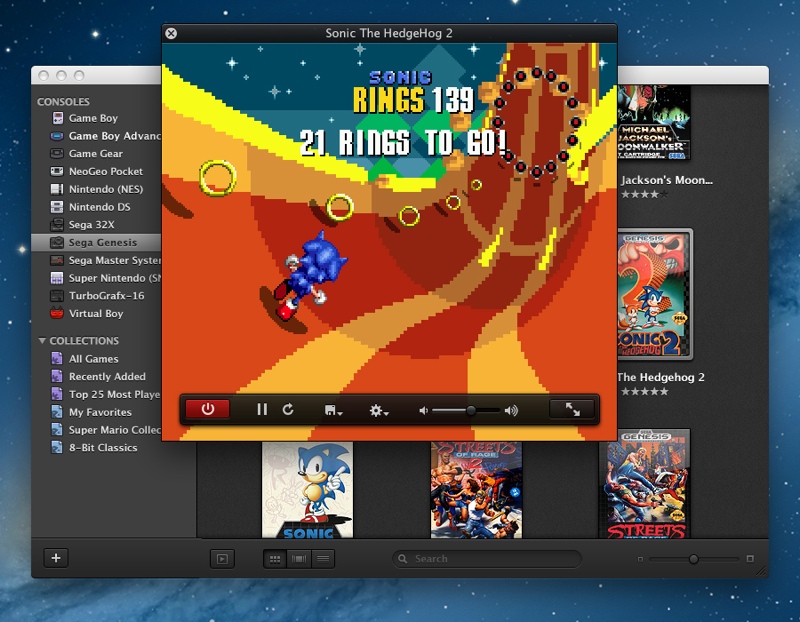A user could, for example, take a photograph and then speak a description of what is in the photograph. Saying a phrase like “this is me at the beach” would automatically tag a photo with the appropriate information, which could later be recalled with a simple voice-based search. Apple specifies that beyond spoken information, additional tags could be added such as a user name and location.
Moreover, because the natural-language processing is capable of inferring additional information, the tags may include additional information that the user did not explicitly say (such as the name of the person to which "me" refers), and which creates a more complete and useful tag.
Once a -- For more information read the original article here.
Several former BroadMap employees are now listed as working at Apple on LinkedIn, including the company's former Director of Program Management who now works in "Maps Data Validation" at Apple. BroadMap CEO Daniel Perrone's LinkedIn profile suggests the company was purchased by a "Fortune 5" company for "supporting their digital mapping efforts."
We have specifically heard from a source directly familiar with Apple's mergers and acquisitions process that Apple acquired BroadMap. The source says that the acquisition was mostly centered around talent, not solely BroadMap's technology. In addition to the information from our source, there is evidence online that Apple made the acquisition.BroadMap is a company that provides Geographic Information Systems (GIS) services, designed to analyze and manage geographical data. The company provides GIS tools along with Digital Mapping Data Products, Location Intelligence, and Web and Mobile Application Development.
Catch, which suspended its service in August, was reportedly acquired in the same month according to the former LinkedIn profile of the company's -- For more information read the original article here.
For the first time, the ‘It just works' philosophy now extends to open source video game emulation on the Mac. With OpenEmu, it is extremely easy to add, browse, organize and with a compatible gamepad, play those favorite games (ROMs) you already own.OpenEmu is able to emulate the hardware of several different consoles, including several 16-bit systems like the Game Boy, GameBoy Color, Game Boy Advance, Game Gear, NeoGeo Pocket, Nintendo Entertainment System, Sega Genesis, and Super Nintendo, among others.
The emulator features a native OS X interface with a design that mirrors iTunes, offering up ROMs in a unified card-style menu organized by system. OpenEmu includes full save state support, allowing multiple ROMs to be played at once, and it also provides OpenGL scaling, multithreaded playback, and gamepad support.
Multiple controllers are supported, including console controllers from Nintendo, Xbox, and PlayStation, along with gamepads from Gravis, Logitech, and more.
OpenEmu can -- For more information read the original article here.
Those funny guys at Netflix have put together a little trailer for a movie that's sure to warm your hearts this holiday season. So check it out!
While mobile developers may hope to strike it rich with the next Candy Crush Saga, the reality is that enterprise developers stand to make four times as much money building mobile apps than consumer-oriented developers do, according to research from VisionMobile. While money isn't everything, especially in developer land, for those interested in making a buck, consumer may be the wrong option for mobile developers.
Consumer Gets The Developer Love
Given the boom in consumer mobile, it's not surprising that developers have been flocking to it, as VisionMobile's survey shows:
Credit: VisionMobile 2013
Apple has stoked this consumer fever, touting $10 billion in developer payments and over 50 billion downloads from its popular App Store. Google, for its part, has also been minting money for developers, while foregoing some cash by shutting down some mobile advertising practices that made the Android mobile experience somewhat spammy.
The consumer, in other words, is king for both major mobile platforms.
Enterprise: Boring And Profitable
Or is it? The problem, as ReadWrite's Dan Rowinski noted earlier this year, "building apps for consumers is a very hit-or-miss business." For every Temple Run there are countless -- For more information read the original article here.
ReadWriteReflect offers a look back at major technology trends, products and companies of the past year.
Last January marked the launch of Code.org, a nonprofit that promotes computer-science education. Code.org launched Hour Of Code, a nationwide campaign that urged Americans to learn how to program. President Obama even recorded a video in support of the campaign. Nearly 15 million people responded to the call.
And that experience encapsulates what a whirlwind year it's been for the "learn to code" movement. In 2012, about 170,000 people—including New York City mayor Michael Bloomberg—resolved to learn to code in that year's Codecademy campaign. In 2013, 88 times that number actually did learn to code—and that's just in Code.org's campaign, which was one of many.
Demand for developers continues to rise, so this trend isn't showing signs of peaking yet. Here's why it took off in 2013.
High Demand
It's no wonder so many people are buying into learn-to-code campaigns. The technology industry is where the jobs are.
In 2010, there were 913,000 U.S. jobs for software developers, a number expected to grow by -- For more information read the original article here.
If you're in the market for a new job, you might want to consider the tech sector. According to LinkedIn, the most desirable skills in 2013 were dominated by tech.
LinkedIn took a look at the skills and employment history of over 259 million members to determine what the most popular skills were this year. Based off new jobs added by people with select skills and recruiter search activity, the company found that social media marketing led the way followed by mobile development, cloud and distributed computing, Ruby, Python and Perl coding languages, and statistical analysis.
Tech Is So Hot Right Now
This year put an increased emphasis on technical education that translated into the job market.
Free open online courses, often called MOOCs, became extremely popular in 2013, and a significant number of those programs focus on technical skills including programming and Web development. Students were able to become self-taught experts in some of the most marketable skills, and, especially in technical fields, job opportunities stemmed from completion of online courses.
A push to learn coding also put more attention on the importance of technical skills in the job market. <a class="colorbox" href="http://code.org/" -- For more information read the original article here.
Though Apple's FaceTime camera is designed to always illuminate the adjacent green light at the top of the screen, software has been written to separate the camera and light hardware, allowing both illegal -- and legal, the FBI has used similar software in criminal investigations -- ways.
While controlling a camera remotely has long been a source of concern to privacy advocates, conventional wisdom said there was at least no way to deactivate the warning light. New evidence indicates otherwise.A pair of students at Johns Hopkins examined Apple's webcam indicator [PDF] and discovered both how to disable the LED indicator, -- For more information read the original article here.
Marcus Thomas, former assistant director of the FBI's Operational Technology Division in Quantico, said in a recent story in The Washington Post that the FBI has been able to covertly activate a computer's camera — without triggering the light that lets users know it is recording — for several years.
“People Over Profit”










